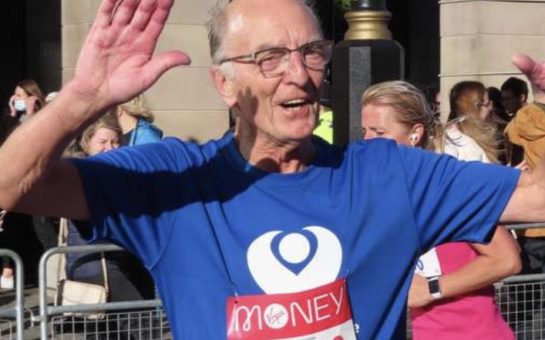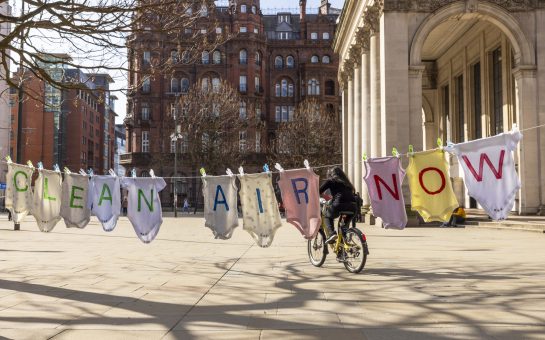A counsellor who specialises in treating drug and alcohol addictions has become the UK’s first certified interventionist – and is calling out for families in Manchester to come to him for help.
Bill Stevens owns Red Chair, a drug and alcohol counselling service based in Cheshire which uses a form of therapy known as ‘intervention’ to help addicts recover.
The therapy invites friends, families or co-workers of the person at risk from their drug or alcohol use to come to the counsellor for help – an action not often seen in UK counselling.
Bill said: “The conventional myth of therapy is that the patient has to be ready to be helped – and often that means that they have hit rock bottom and lose everything before they realise they need it.
“The death rate because of drugs and alcohol is so often high because the person didn’t get help in time and no one was there to intervene.
“Intervention aims to beat that myth and is effective at treating someone when they need help, rather than when they want it.”
Alcohol and drug addiction is a common illness across the UK, with Manchester having the highest number of drug-related deaths in England.
Families are often the ones who suffer the most, as they try to protect their loved one from dangers because of their addiction – something Bill knows about personally.
“I am 20 years sober myself but when I was drinking and addicted to alcohol my dad used to protect me by giving me a tenner each night thinking I wouldn’t be able to do much harm with it.
“It made him feel like he was in control and helping me.
“There are thousands of families doing the same – doing the person’s washing, helping them pay their rent or mortgage, helping them to stay at work.
“80% of enquiries from treatment centres are from families who are worried about someone and they are the ones dealing with the consequences.
“Family intervention is designed to help everyone involved – close family, colleagues, employers, definitely the best friends.”
Bill has now been certified by the Pennsylvania Certification Board, which ensures that he sticks to a strict code of ethics with his work.
Bill said: “Anyone can say they practise intervention but they might not have supervision or a code of ethics- and that is wrong.
“I had had 15 years’ experience in the priory when I started doing it, I discovered the Association of Intervention Specialists in America and over the last few years I have been getting very involved in Intervention in the UK and I have now been accredited as an Intervention professional.”
Intervention doesn’t just have to take place inside a counsellor’s office either. Because of the nature of the therapy, anyone who is worried about the person taking drugs or drinking alcohol can intervene.
Nicola*, 25, and Amanda*, 30, who are from Manchester, both had addictions to drugs before their loved ones intervened.
Nicola started smoking cannabis at the age of 12 and was selling it by the time she was 15. After managing to finish school, she turned to cocaine – and things started to get serious.
She said: “I was living on my own by then and my mum was trying to help but I wasn’t listening. I knew I could get help if I wanted from the people she was telling me to go to, but I wasn’t ready.
“By 18 I had a baby and it was then I couldn’t hide my drug use any more, as there were people around trying to help me with my little boy.
“I was holding down a job, but everybody was becoming aware of the problem then.”
Nicola says her mum and social services intervened just before she hit rock bottom – when they threatened to take her little boy away and she knew she would lose everything if she didn’t get help.
“I was 21, and I didn’t want to stop taking drugs and drinking because I was thinking that is what everyone does at that age – but I was really selfish.
“No matter what anyone said to me I was just thinking ‘poor me’ and not about anyone else.
“When mum and social services intervened, I was told to go to rehab or be stopped seeing my son. I went to rehab– it was a cruel to be kind place, they didn’t hide it from me, they told me to stop the drugs, but it was also very therapeutic.
“I still have ongoing support with Narcotics Anonymous meetings – but four-and-a-half years later I now have a first class honours degree and a beautiful six year old boy.
“I believe in what Bill is doing by getting certified. I went to counsellors that weren’t really qualified and they tried to blame everyone else when the problem was actually me.
“I feel I would have carried on taking drugs if I hadn’t gone into recovery.”
However, not everyone receives their intervention so quickly.
Amanda met an older man at the tender age of 14, who she says groomed her into becoming an addict and staying off school to smoke cannabis and drink alcohol.
Amanda said: “I would have a hangover from drinking so much and he would give me methadone.
“One day he gave me a crack pipe and I didn’t question it – although I didn’t know what it actually was until around ten years later.
“On my 16th birthday he took me to the pub where my mum worked, we had a few drinks, came back and that was when I first took heroin. It’s a miracle I’m actually here now.”
Amanda’s relationship with the man turned abusive after she found out she was pregnant with his baby.
She said: “I couldn’t get away – he would say if you leave I will kill myself and I believed it because he had done it once and ended up on a life support machine.
“It got to the point where he was selling drugs but not bringing back money so I said okay then I’ll take the drugs too, and I ended up addicted.”
For ten years, Amanda denied she had a problem as she managed to hold down a job, go to college and look after her daughter.
“It’s hard to believe but I had a prescription for methadone for ten years and no one ever said do you want to come off this, do you want to go to rehab?
“Because I had a child I think It was just assumed I couldn’t have time ‘off’ to do a detox.”
Amanda was soon in another relationship – with a man just as abusive as the first one.
He was addicted to crack as well as heroin. She found she was pregnant again and ended up in a refuge with no family support – and things continued to spiral out of control.
“My eldest daughter – her dad got custody of her and social services got involved because of the domestic violence.
“My second partner went to prison and it was at that point social services realised that drugs probably did play a part in the situation!”
Amanda got put on probation for the violence and her youngest daughter put into care while she was told to do a drug rehabilitation course.
“It was actually my probation officer who did the intervention, sitting me down and telling me I needed to make some final steps otherwise my daughter was going to get adopted.
“That was the point I decided to change my life.”
Bill is now urging families in Manchester to come forward to see how intervention can help them. For more information ring Red Chair on 0845 224 1965
*names have been changed as interviewees wished to remain anonymous
Picture courtesy of WikiCommons, with thanks.
For more on this story and many others, follow Mancunian Matters on Twitter and Facebook.



